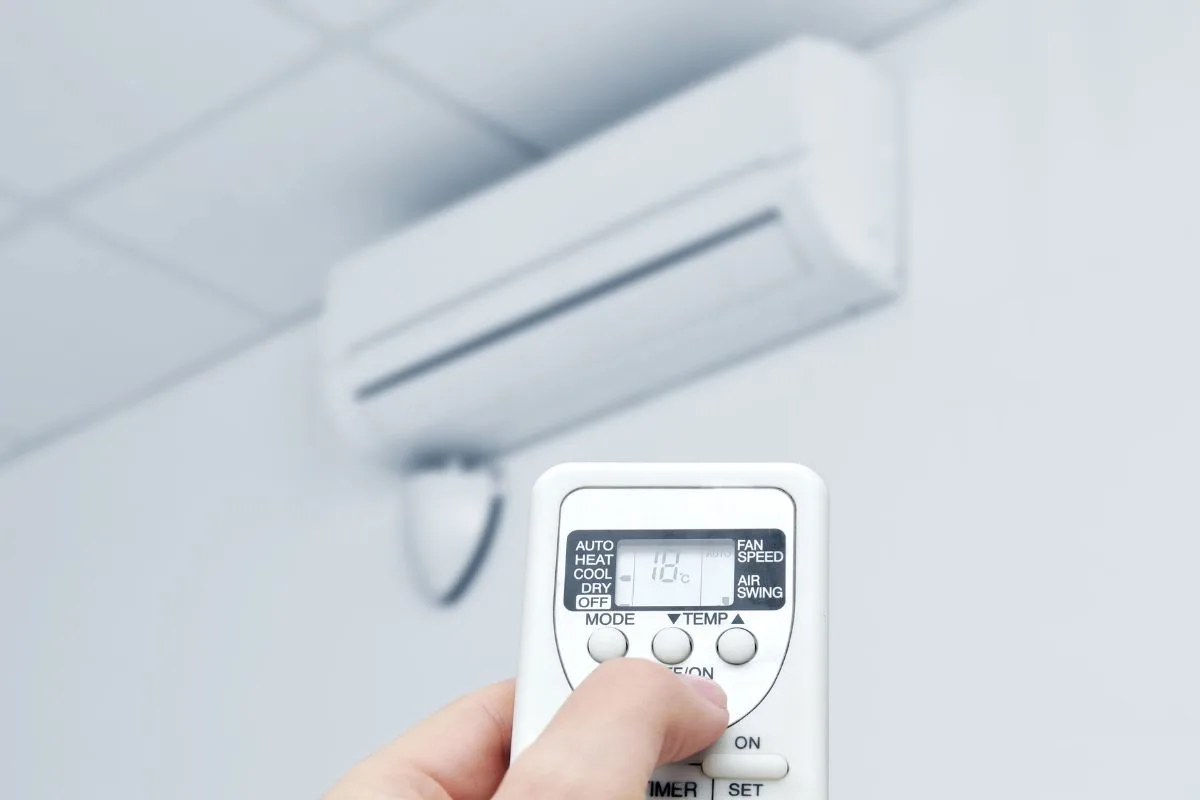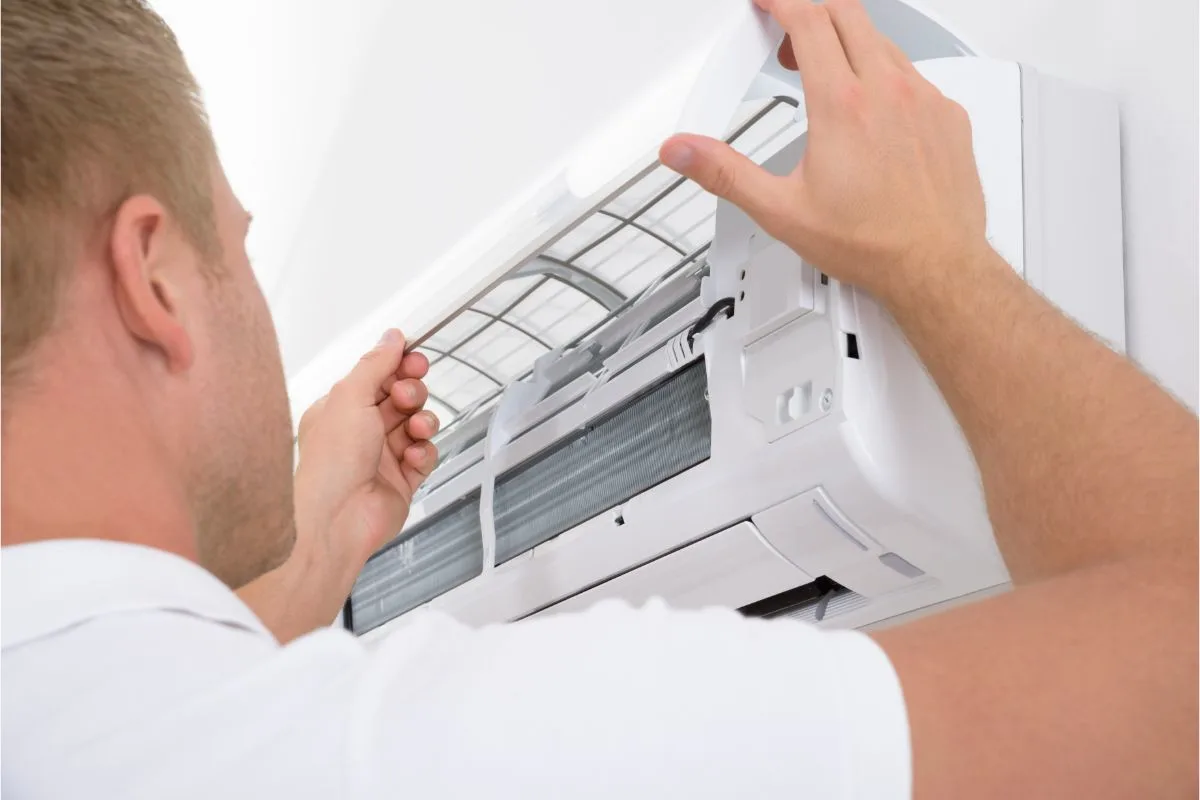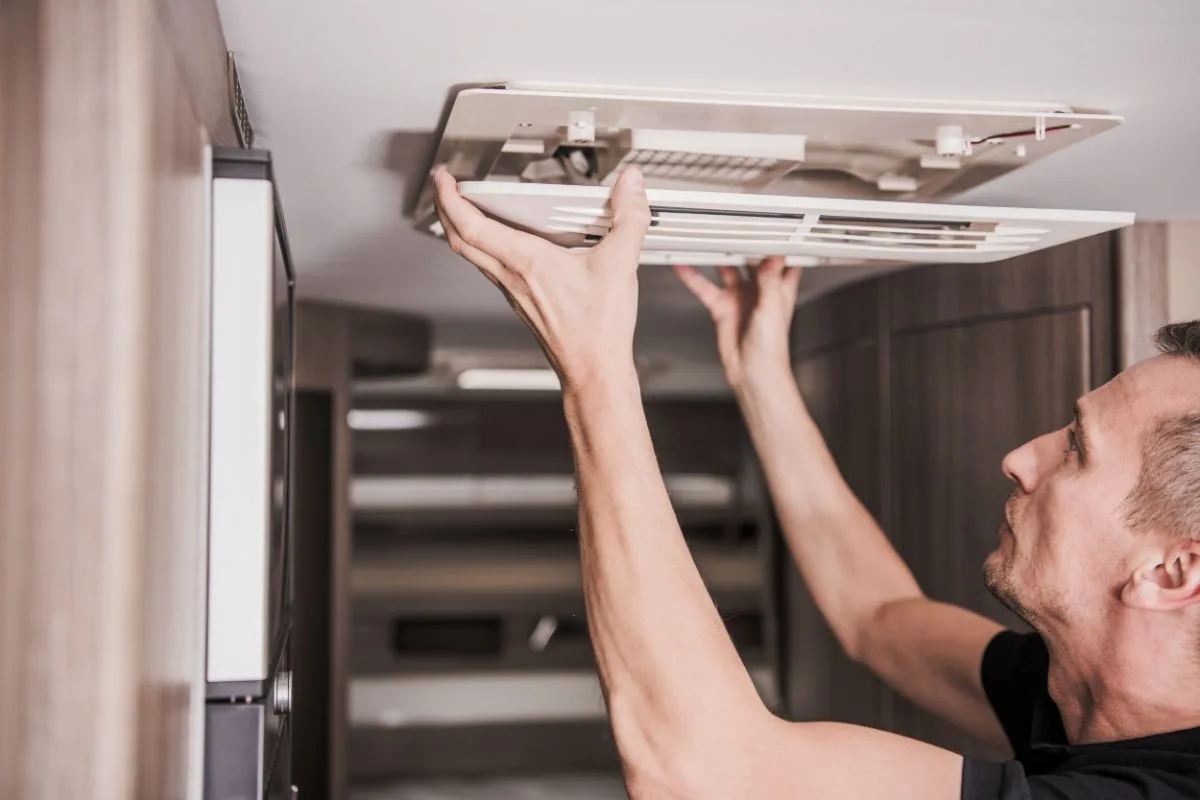
I hadn’t received a concrete answer to this question of how long an RV air conditioner lasts when I did my research. However, that’s because many variables affect its lifespan, some of which I never thought of until now.
Related: 8 Different Types of RVs
What is the Average Lifespan of an RV Air Conditioner?
I’ve seen a range of answers about an RV AC’s lifespan. I think the shorter figures determine how long it might last if you don’t maintain or repair it but just decide to replace it.
If you don’t inspect it every season, it may stop working as optimally as it could after about three to five years. I’ve seen some people comment on their RV cooling systems, saying that they last between 10-15 years.
Of course, many factors determine this, such as the climate and quality of the AC. The higher lifespan estimate pertains to a unit you’d inspect and maintain at least once during a season or every time you travel, which ever number is greater.
Some people who do maintain their units well might change them ever five to six years. That’s because they use them every day. If you only take your camper out a few times a year for just a few days at a time, you probably don’t need to repair or replace it as often.
What Factors Affect how long an RV AC will Last?

Multiple factors, including the type of use, the size, and the installation affect the lifetime of an RV air conditioner. I believe that each user has some control over how long they last by how well they take care of them.
How can I make my RV Air Conditioner last Longer?
I’ve noticed some of the same types used to care for a residential AC pertain to a recreational vehicle cooling system. Make sure you clean your RV air conditioner as often as possible.
You especially need to perform routine maintenance on it before the hot season starts, and checking for freon leaks while you’re at it.
What are some Tips for Using your RV Air Conditioner more Efficiently?

The same advice used for all types of AC’s to make it last long also pertain making them run more efficient. First, turn off the RV air conditioner when you are not using it.
Then, decide to run the AC at as cool of a temperature as you can stand it, which typically ranges from 68-72 degrees. Check your filters regularly to ensure they are clean too. If they look dirty and are reusable filters, don’t procrastinate cleaning them.
Otherwise, replace them with a clean disposable one. Don’t forget to also make sure your vents are free of any obstructions, which also can help you prevent fire hazards.
What Common Mistakes that People Make when Using an RV Air Conditioner?
People sometimes make the same mistakes with an RV air conditioner as they would with a house AC. For instance, they might purchase an AC that’s not the right size.
Either it blows too fiercely and makes the indoor space too cold, or it doesn’t provide enough power to keep the entire camper at a comfortable enough temperature.
Now, it’s confession time: I can’t tell you that I ever thought of having the coils and fins checked and cleaned, but they need the same type of care that a fan would. It can even become unsanitary and diminish the air quality if you don’t maintain this part of your RV cooling systems.
The coils and fins may not need as much attention as the air filters, however. I learned that the least an RV owner can do at least once a year is make sure those are clean because that’s one of the parts that can improve indoor air quality the most.
How often should you have your RV Air Conditioner Inspected?

The standard advice given is to have the air conditioner inspected at least once a year. However, that also depends on how often you use it.
If you’re a frequent traveler who spends quite a bit of time in extreme heat, you might have to have it looked at more often. Frequent usage also may increase your need for an inspection at least two or three times while you’re using it.
How Often Should you Maintain your RV Air Conditioner?
I say check it and update it as often as you have the time. When I did more research, I found that checking it and having it maintained once a year is only the bare minimum, such as with occasional weekend usage.
People who travel it for four to six months out of the year and even live in it will need to probably at least keep an eye on it and check for leakages at least once a month.
What Types of RV Air Conditioners are there?

“The two main categories of RV air conditioners are grouped according to whether or not they are ducted,” reports Jeremy Laukkonen, a Wiki Motors expert.
Cooling units with ducts typically blow the air from the roof, floor and other channels. It might also provide you remote control access. On the other hand, a ductless unit might sit on the roof, and it provides both heating and cooling when you need it.
When I count how many RV air conditioners there are, however, I do add a third one. If you have enough power to run a portable one, you can place it anywhere in your unit to cool yourself.
In addition to air conditioners, you also have the option of using an evaporative cooler, which blows air past ice water into the air. It doesn’t seem to keep the temperature as cool as an air conditioner, but it doesn’t have freon in it.
I used evaporative coolers before. When I did, I noticed that you may need a few of them for a tiny space to make them effective if they’re the handheld type.
Larger evaporative coolers may work better, and you can make your own with Styrofoam, ice and a fan just by cutting holes and setting it up to allow air to hit the ice water and cool the air. They’re at least helpful in an HVAC emergency.
Is an RV Air Conditioner a Fire Hazard?

Both Briana Supardi of Channel 6 News in the state of New York and ABC News in New York City reported in 2020 and 2017 that rising temperatures sometimes strain air conditioners. In some cases, this can cause a fire hazard.
However, that’s not the only issue with any kind of AC, including one installed in an RV that could result in a fire. Kelly McCarthy also quotes Pete Piringer Montgomery County Fire and Rescue Service in Maryland.
Piringer warns about possible electrical issues that cause fires and also says not to use extension cords or power strips with an AC.
Not using extension cords when camping seems impossible to me. However, I can see Piringer’s point. They do sometimes overheat and start a fire. However, I also think with regular maintenance, you can reduce chances of accidental fires.
What Are Some RV Air Conditioner Precautions to take?
If you notice any leaking from the AC, don’t always assume it’s just water. Anytime you see it emitting liquids more than usual, make sure you have it inspected for freon leaks.
If you also have difficulty breathing or feel weak and faint, call for help with the unit immediately – and get some urgent care for yourself.
Sometimes, your recreational air conditioner may no longer run as efficiently as it used to. If so, that’s one sign you may need to call someone who can check it out for you.
If you neglect your AC, you could end up stuck in your RV in temperatures more than 100 degrees without it. Along with that, make sure you have backup cooling sources—even coolers with ice in them and some portable fans—to use in case of emergencies.
